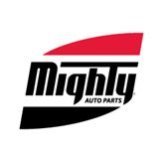-
Welcome to Auto Parts Forum
Whether you are a veteran automotive parts guru or just someone looking for some quick auto parts advice, register today and start a new topic in our forum. Registration is free and you can even sign up with social network platforms such as Facebook, X, and LinkedIn.
Common Causes of Oil Leaks
-
Similar Topics
-
By jack wilson
As a truck owner, maintaining your vehicle's health is crucial to its longevity and performance. One of the most important aspects of truck maintenance is regular oil changes. In this blog, we'll explore the benefits of regular truck oil changes and answer the question, "What are the benefits of regular link hidden, please login to view?" Here are the top 8 facts you need to know.
-
By Mighty Auto Parts
The post
link hidden, please login to view appeared first on link hidden, please login to view. Nothing is more frustrating for the vehicle owner than a puddle of oil on their carport fl oor or the stench of oil on a hot engine or exhaust system following a lube service. It is equally frustrating for the lube shop asthey must correct the problem, losing billable labor time. We have seen customers […]
The post
link hidden, please login to view appeared first on link hidden, please login to view.
link hidden, please login to view -
By Counterman
link hidden, please login to view announced the launch of a new passenger car motor oil – Red Diamond Ultimate. The company said the oil is formulated to fully meet the General Motors dexos1 Gen 3 specification among others but is also formulated to keep the oil cleaner for longer periods of time while improving performance, engine system protection, mileage and horsepower. In a news release announcing the new product, the company said Red Diamond Ultimate passenger car motor oil uses 100% Group III base oils and is infused with Hot Shot’s Secret’s proprietary FR3 Nano Technology. It is suited for both hybrid and internal combustion engines, especially small displacement, turbocharged GDI engines where it can protect against low-speed pre-ignition. The company added that Red Diamond protects against timing chain and valve wearing that often occurs and fights the formation of high temperature deposits that drain horsepower and fuel economy.
“We’re thrilled to offer passenger car motor oil and exclusively to our dealer network,” said
link hidden, please login to viewBrand Manager, Josh Steinmetz. “With three viscosities, we expect a lot of demand for this product given the compatibility for any vehicle where Dexos1 Gen 3 is specified. Also, it also exceeds API SM, SN and SN Plus and many of the Ford and Chrysler motor oil specs. Adding this oil to our lineup allows service centers to offer an outstanding oil to protect their customer’s vehicles.” Red Diamond Ultimate Motor Oil is available in three viscosity weights — 0W-20, 5W-20 and 5W-30 now and in three sizes — 5-gallon, 55-gallon and 330-gallon.
The post
link hidden, please login to view appeared first on link hidden, please login to view.
link hidden, please login to view -
By Counterman
link hidden, please login to viewannounced the launch of its new passenger car engine oil additive technology Lubrizol PV1710 that the company said will enable oil marketers to meet the performance requirements of ILSAC GF-7, the new passenger car engine oil specification that will go into effect on March 31, 2025. The company added that Lubrizol PV1710 offers customers a solution formulated to meet ILSAC GF-7 credentials and with a capability to reach dexos 1 specification. Core technology testing is complete and additional testing is underway to cover industry requirements. Lubrizol PV1710 will be available well in advance of the first-license timeline, enabling oil marketers to fully prepare to go to market, the company said.
“In developing Lubrizol PV1710, our goal was to simplify the process for our customers,” said Padu Sreenivas, product manager for
link hidden, please login to view. “This product is designed for coverage in a broad range of base stocks and viscosity grades, enabling customers to address of GF-7 market needs in a streamlined timeframe.” In a news release, the company said its Lubrizol’s Specification Readiness Program grants customers access to technical expertise, testing capacity, portfolio management, and marketing support, enabling oil marketers to meet requirements with ease and confidence.
The post
link hidden, please login to view appeared first on link hidden, please login to view.
link hidden, please login to view
-




Recommended Posts
Join the conversation
You can post now and register later. If you have an account, sign in now to post with your account.
Note: Your post will require moderator approval before it will be visible.